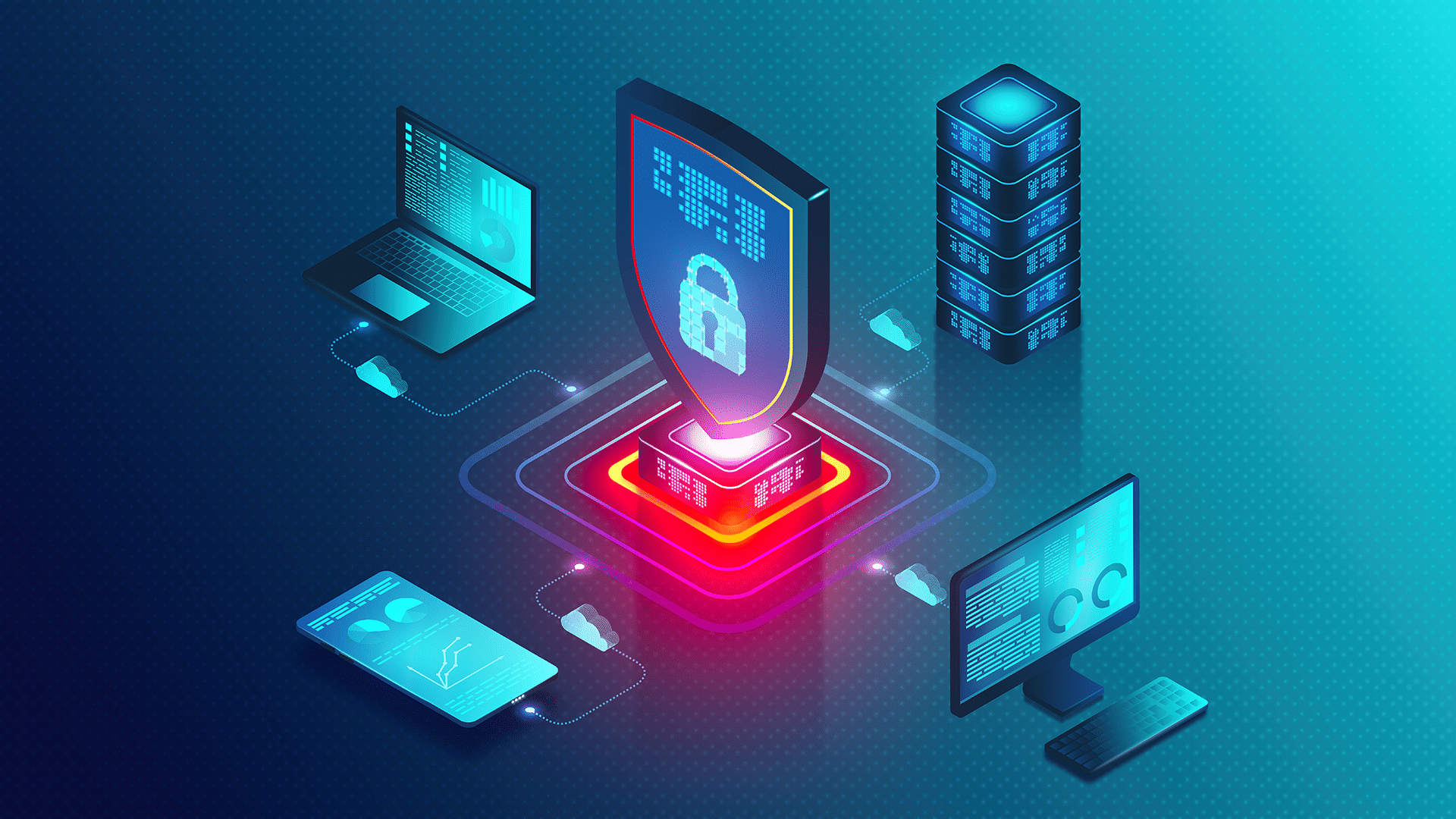Unauthorized attacks on corporate websites and servers continue unabated. Cyber security is becoming increasingly important for all companies, as not only large corporations but also small and medium-sized enterprises are potential targets of attacks. This report explains the importance of cyber security in such companies, specific examples of cyber attacks, countermeasures, and other up-to-date information that corporate security department managers and personnel need to know. We also introduce a cybersecurity research firm with advanced expertise that can be consulted during normal times and in the event of an emergency.

What is Cyber Security?
Cybersecurity is the protection of networks, devices, programs, and data in the digital environment from malicious attacks. Digitized information is under constant threat because it can be easily transported and illegally accessed in the cloud.
Cybersecurity is a set of processes, tools, and measures to protect such digital data from cyber attacks, which are theft and vandalism conducted through networks.
Importance of Cyber Security in the Enterprise
The purpose of hackers and others who conduct cyber attacks is to gain unauthorized access to a company's systems to disrupt its operations, alter or leak data to conduct corporate espionage, or extort money. If a cyber attack targets a company and leaks customer information or confidential internal information, the company may be forced to shut down its services or business, or the company may suffer tremendous damage from ransom or damage claims.
Once information is leaked on the network, it is difficult to recover it completely, and it can have a significant impact on the company's activities due to the inevitable loss of trust from customers, suppliers, and partners. To mitigate and prevent such risks, cyber security is now an essential issue for companies.
Latest Trends in Cyber Security
In today's society, a wide variety of information is flying around on networks, and all corporate activities are based on the use of information. In some cases, corporate activities in which huge amounts of big data are handled in various places may include company secrets, confidential national information, and important matters related to national security. Therefore, if such information is leaked or stolen, there is a serious risk of damaging the interests of not only a private company but also the nation and its citizens. Cyber-attacks have also been increasing in recent years, with unauthorized access and cyber-attacks being carried out by specific organizations, and even by nations.
To counter organized and state-sponsored cyber-terrorism, Japan enacted the Cyber Security Basic Act in 2014, which came into effect in 2015. The Cyber Security Basic Law is the fundamental guideline and foundation for the promotion of information security policy by the government. Based on this basic policy, it is necessary to raise security awareness not only at the national level but also at each organization and group.
Difference between Cyber Security and Information Security
Information security" and "cyber security" are often confused, but they have different meanings. This section explains the difference between cyber security and information security and the basic characteristics of each.
Information security is a comprehensive approach to protecting all information within an organization. The three information security elements (CIA) of Confidentiality, Integrity, and Availability are necessary to maintain the reliability of information. Information security is an initiative to protect information in any format, including paper and digital, in order to maintain these three elements. Cyber security, on the other hand, focuses primarily on protection against threats that occur online. It is within the broader approach of information security, the idea being to address the "threat causes" to the CIA.
Specific Examples of Cyber Attacks
There are many different types of cyber attacks that cyber security should prevent. The following are examples of typical attacks, which mainly refer to the act of attacking or destroying data via networks.
Malware
Malware is a coined word that stands for malicious (Malicious) software (Software). Malware generally comes from unsolicited email attachments or fake software download links, and it illegally infiltrates computers to collect and steal data. There are "computer viruses" that spread throughout a computer system, "Trojan horses" that impersonate legitimate software or files and carry out attacks such as data destruction, and spyware that secretly records and leaks personal information.
 [Related Article] What happens if you are infected with malware? What happens if you are infected with malware? /fllp/malware-infection
[Related Article] What happens if you are infected with malware? What happens if you are infected with malware? /fllp/malware-infection Ransomware
Ransom" means "ransom," and ransomware is a type of malware. It encrypts computers and data with a strong algorithm, making them inaccessible, and demands a ransom in exchange for the encryption key. The ransomware then demands a ransom in exchange for the encryption key, and threatens loss of data if payment is not made.
 [Related Article] What Happens When Infected with Ransomware? What should companies do if they are infected with ransomware? /fllp/ransomware-infection
[Related Article] What Happens When Infected with Ransomware? What should companies do if they are infected with ransomware? /fllp/ransomware-infection Targeted Attacks
A targeted attack is an attempt to exploit confidential information or encrypt data against a specific company or organization. They are often sophisticated and complex attacks that are customized to the target company, such as sending fake e-mails and malware-laden attachments, and are difficult to defend against.
Phishing Scams
Phishing scams are cyber-attacks that send e-mails or SMSs to lead users to malicious websites and force them to enter personal information such as credit card information. There are many sophisticated and malicious schemes that pose as major mail-order sites, banks, and other national organizations.
DoS attack/ DDoS attack
DoS and DDoS attacks are cyber attacks that overload servers and bring them down. They take down websites by accessing them in large numbers at once. The tactic is to force a company or organization to temporarily suspend operations by taking down its website or systems.
Major Types of Cyber Security
There are multiple methods of cyber security to respond to cyber attacks that are carried out in a variety of ways. The following is a list of the main types of cyber security.
Network Security
Protecting the entire system, including computers, servers, smartphones, etc., from cyber attacks with functions that have a network role. For example, starting from port-level control by switches and access control by routers and firewalls, higher layers of protection such as IDS/IPS (detection and prevention of unauthorized access), load balancers (distribution of communication load), and WAFs are also known.
Application Security
The protection of applications from threats, including custom applications developed for specific applications, web applications, mobile applications, etc. Once an application is released, it is always protected against cyber threats. Once an application is released, it is always exposed to cyber attacks, so it is important to consider security at every stage from the initial planning, design, and development stages to post-release maintenance, and to have a design philosophy that prevents vulnerabilities from entering the application.
Endpoint Security
Endpoint security is a security measure to protect endpoints (computers, mobile devices, servers, etc.). It includes EPP/EDR to protect endpoints as the entry and exit points of information, SASE that integrates security solutions (SWG, CASB, NGFW, ZTNA, FWaaS, DLP, RBI, etc.) and network functions (VPN, SD-WAN, ISP, etc.) as a service, OS fortification (hardening), and application of fixes including installation apps.
 [Related Article] What is the difference between EDR and EPP (anti-virus)? Endpoint security measures explained For more information on endpoint security, see this article. /fllp/edr-security
[Related Article] What is the difference between EDR and EPP (anti-virus)? Endpoint security measures explained For more information on endpoint security, see this article. /fllp/edr-security Measures to protect yourself from cyber attacks
There are many different types of cyber attacks, and information used in business operations is at risk every day. This article describes specific cybersecurity measures to prevent cyber attacks.
Implement and properly manage EPP (anti-virus function)/EDR
The most typical way to protect computers and smartphones from cyber attacks is to use EPP anti-virus functions and EDRs. Deploying a reliable, paid-for product and keeping it up-to-date will protect your valuable data.
Keep your operating system and software up-to-date
It is also important to keep your operating system and software up-to-date. This will eliminate vulnerabilities in your computer and software, as well as protect your data from malicious cyber attacks that take advantage of already known vulnerabilities.
Do not carelessly open email attachments or URLs
Be wary of e-mails from unknown senders. The basic rule is not to open attached files or click on URLs listed. There are cases in which the sender poses as a large company or national organization, so be careful.
Always be ready to consult with a cyber security specialist.
The important thing is to be knowledgeable about cyber security. On the other hand, there are many complex and esoteric technologies, and it is extremely difficult to cover even the latest information. It is necessary to take measures in normal times so that you can consult with a cyber security specialist at any time when you need help.
In addition, it is important to raise your security awareness on a regular basis by using strong passwords that are difficult to guess, not sending personal information or accessing important information when using public Wi-Fi, and not accessing untrustworthy and unauthorized sites.
The Need for Cyber Security Surveys
Cyber security survey is a very important activity for companies and organizations. In order to effectively respond to cyber attacks, it is difficult for in-house personnel to conduct investigations alone. It is safe to ask a professional investigation company with up-to-date information and a proven track record to conduct an investigation. The objectives of a highly important cyber security investigation, which requires a quick and accurate response from identifying the cause to subsequent countermeasures, are as follows
To accurately assess the damage caused by cyber attacks
First, to detect that a cyber attack has occurred and discover any unusual activity or attacks. To accurately assess the damage situation, which will lead to problem solving.
To identify infection routes and prevent the spread of damage
We need to identify the infection route and understand how the intrusion or attack took place and the attack methodology. Identify affected data and resources to prevent the spread of damage.
To prevent similar damage by strengthening security
To prevent similar damage from occurring, systems are repaired, vulnerabilities are fixed, and security processes are improved. We also develop plans for appropriate countermeasures to prevent recurrence.
Contact FRONTEO for cyber attack response and cyber security investigation
As security damages continue to increase, cyber security investigations are essential to minimize the impact of security incidents and protect organizations from future attacks. A cyber security investigation is an in-depth investigation of an incident or attack that occurs within a computer system or network, and is the entire process of identifying the cause, assessing the damage, and taking appropriate countermeasures and responses. Especially in small and medium-sized enterprises, there is often a lack of personnel with expertise, while there are also many complex and difficult processes that are difficult to handle in-house alone, requiring quick and accurate decisions and responses in order to minimize damage.
FRONTEO, with its extensive experience in cyber security investigations, offers a high-quality "Cyber Security Investigation Package" for initial response. This package is a compilation of the minimum surveys necessary to quickly assess damage and propose remedial measures in the event of a contingency. The package includes specialized and highly accurate surveys such as EDR surveys to ascertain virus intrusion routes and damage, and dark web surveys to ascertain the leakage of confidential and personal information.
 [Related Article] Cyber Security Survey Package The service site of "Cyber Security Survey Package" is herehttps://legal.fronteo.com/smaller-companies-package/ For FRONTEO's cyber security For inquiries about FRONTEO's cyber security services, please contact us at https://legal.fronteo.com/contact/
[Related Article] Cyber Security Survey Package The service site of "Cyber Security Survey Package" is herehttps://legal.fronteo.com/smaller-companies-package/ For FRONTEO's cyber security For inquiries about FRONTEO's cyber security services, please contact us at https://legal.fronteo.com/contact/
